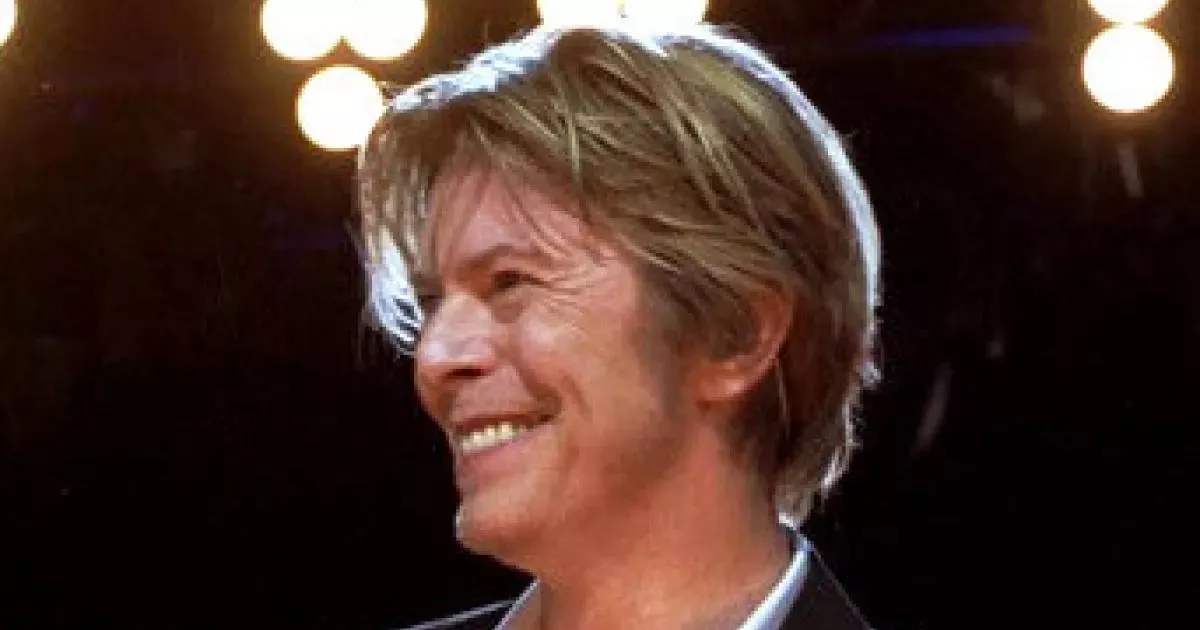From career breakthroughs to professional milestones, explore how David Bowie made an impact.
David Bowie (David Robert Jones) was a highly influential English singer-songwriter and actor, celebrated for his innovation and impact on popular music, especially during the 1970s. His career, spanning five decades, was characterized by constant reinvention and striking visual presentation. Bowie remains a critically acclaimed and influential figure in music history.
1963: Professional Music Career Start
In 1963, David Bowie began his professional music career after studying art, music and design.
November 1964: Bowie speaks out against prejudice
In November 1964, during his first television interview, David Bowie, then known as Davie Jones, spoke out against prejudice against men with long hair after he and his band, the Manish Boys, were asked to cut their hair before a BBC television appearance.
January 1966: Release of "Can't Help Thinking About Me"
In January 1966, David Bowie released "Can't Help Thinking About Me" with the Lower Third, but it was unsuccessful.
April 1967: Release of "The Laughing Gnome"
In April 1967, David Bowie released his solo single, "The Laughing Gnome," which failed to chart.
1967: Release of Self-Titled Album
In 1967, David Bowie released a self-titled solo album before achieving success later on.
1967: "Over the Wall We Go" single for Oscar
In 1967, David Bowie's composition "Over the Wall We Go" became a single for Oscar.
1967: Release of "The Laughing Gnome"
In September 1973, David Bowie's 1967 novelty record, "The Laughing Gnome," entered the charts, reaching number six.
September 1968: Formation of Feathers
In September 1968, Hermione Farthingale formed a group with David Bowie and guitarist John Hutchinson named Feathers.
March 1969: Tour with Tyrannosaurus Rex
In March 1969, David Bowie toured with Marc Bolan's duo Tyrannosaurus Rex, performing a mime act as the opening act.
July 1969: Release of "Space Oddity"
On July 11, 1969, David Bowie released "Space Oddity" as a single five days before the Apollo 11 launch. The song reached the top five in the UK charts.
July 1969: 40th Anniversary of Moon Landing and 'Space Oddity'
On the 40th anniversary of the July 1969 Moon landing, EMI released the individual tracks from the original eight-track studio recording of the song, in a 2009 contest inviting members of the public to create a remix.
1969: Performances by Feathers
Between September 1968 and early 1969, Feathers gave a small number of concerts combining folk, Merseybeat, poetry and mime.
1969: "Space Oddity" Release
In 1969, David Bowie achieved his first top-five entry on the UK singles chart with the release of "Space Oddity".
1969: Won Ivor Novello Special Award For Originality
In 1969, David Bowie's song "Space Oddity" earned him the Ivor Novello Special Award For Originality, marking a commercial breakthrough in his career.
1969: Re-issue of "Space Oddity"
In 1975, the re-issue of David Bowie's 1969 single, 'Space Oddity' became Bowie's first number-one hit in the UK a few months after 'Fame' achieved the same in the US.
1970: Release of "The Man Who Sold the World" album
David Bowie's third album, The Man Who Sold the World was released in 1970. It contained references to schizophrenia, paranoia and delusion. It represented a departure from the acoustic guitar and folk rock style established by his second album, to a more hard rock sound.
1970: Release of "The Prettiest Star"
In 1970, David Bowie wrote and released the single "The Prettiest Star" for Angela Barnett.
1970: Unreleased Tracks
In 1970, Deram finally released Let Me Sleep Beside You and Karma Man by David Bowie
February 1971: Publicity tour across the US
Between January and February 1971, David Bowie undertook a coast-to-coast publicity tour across the US to promote the album "The Man Who Sold the World", during which he was interviewed by media and exploited his androgynous appearance, wearing a dress during interviews.
1971: Release of "Hunky Dory"
In 1971, the album 'Hunky Dory' was released. It featured a stylistic shift towards art pop and melodic pop rock. Peter Noone of Herman's Hermits covered the album's track "Oh! You Pretty Things", which reached number 12 in the UK.
1971: Bowie's First Trip to the US
The movie "Stardust" follows Bowie on his first trip to the United States in 1971.
February 1972: Launch of Ziggy Stardust Stage Show
On February 10, 1972, David Bowie launched his Ziggy Stardust stage show with the Spiders from Mars at the Toby Jug pub in Tolworth, Kingston upon Thames.
1972: Re-release of "The Man Who Sold the World"
David Bowie's back catalog became highly sought after. The Man Who Sold the World was re-released in 1972 along with Space Oddity.
1972: Contribution to Lou Reed's Transformer
In 1972, David Bowie contributed backing vocals, keyboards, and guitar to Lou Reed's solo breakthrough, 'Transformer', co-producing the album with Mick Ronson.
1972: Emergence of Ziggy Stardust
In 1972, David Bowie re-emerged during the glam rock era with his flamboyant and androgynous alter ego, Ziggy Stardust, spearheaded by the success of "Starman" and 'The Rise and Fall of Ziggy Stardust and the Spiders from Mars'.
1972: RCA Records Reissue
In 1972, David Bowie's second album, originally released in the UK as 'David Bowie', was reissued internationally by RCA Records under the title 'Space Oddity'.
1972: Ziggy Stardust concert
In June 2008, a live album was released of a Ziggy Stardust-era concert from 1972
June 1973: Release of "Life on Mars?"
In June 1973, David Bowie's "Life on Mars?" was released and peaked at number three on the UK Singles Chart.
July 1973: Ziggy Stardust's Retirement
On July 3, 1973, David Bowie dramatically retired the Ziggy Stardust persona on stage at London's Hammersmith Odeon.
1973: Coco Schwab becomes Bowie's personal assistant
In 1973, Corinne "Coco" Schwab started working as David Bowie's personal assistant, a role she held for 43 years until his death. She initially worked as a receptionist at MainMan's London office and later helped Bowie break free from the company's financial control. Afterward, Bowie invited her to be his personal assistant.
1973: Release of Aladdin Sane
In 1973, David Bowie's 'Aladdin Sane' was released, becoming his first UK number-one album.
December 1974: End of Diamond Dogs Tour
In December 1974, David Bowie's Diamond Dogs Tour concluded in North America, coinciding with Bowie's slide into heavy cocaine use and addiction.
1975: Release of "Young Americans" and Success of "Fame"
In 1975, David Bowie released the album 'Young Americans,' achieving commercial success in the US and UK. The song "Fame", a collaboration with John Lennon, became Bowie's first US number one. Bowie fired Defries as his manager.
1975: Shift to "Plastic Soul" and US Crossover Success
In 1975, David Bowie shifted his style towards what he called "plastic soul", achieving his first major US crossover success with the single "Fame" and the album 'Young Americans'.
1975: Severance settlement with Defries ended
In September 1982, David Bowie's 1975 severance settlement with Tony Defries ended.
1976: Release of Station to Station and Thin White Duke persona
In 1976, David Bowie released the album Station to Station, introducing his new persona, the Thin White Duke. The album, influenced by electronic and German krautrock, saw Bowie at the height of his cocaine addiction. The Thin White Duke character was an extension of Thomas Jerome Newton, the extraterrestrial being he portrayed in the film The Man Who Fell to Earth the same year.
1976: Starring in "The Man Who Fell to Earth" and Release of "Station to Station"
In 1976, David Bowie starred in the cult film "The Man Who Fell to Earth" and released the album 'Station to Station'.
1976: Bowie expresses support for fascism
In 1976, speaking as the Thin White Duke persona, David Bowie made controversial statements supporting fascism and expressing admiration for Adolf Hitler in interviews. He stated that Britain was ready for a fascist leader and admired fascism's efficiency.
January 1977: Release of Low
In January 1977, David Bowie's album Low was released, yielding the UK number three single "Sound and Vision". The album's performance surpassed that of Station to Station in the UK chart, where it reached number two.
October 1977: Bowie retracts fascist comments
In October 1977, David Bowie retracted his earlier comments expressing support for fascism in an interview with Melody Maker. He blamed mental instability and drug problems for his remarks and described himself as "apolitical."
1977: Start of the Berlin Trilogy with the album "Low"
In 1977, David Bowie changed direction again with the electronic-inflected album 'Low', the first of three collaborations with Brian Eno known as the Berlin Trilogy. He also released the album "Heroes" in 1977.
1977: Release of "Heroes"
In 1977, David Bowie released the album "Heroes", which was recorded entirely in Berlin. The album incorporated pop and rock, and its title track was released in both German and French, later becoming one of Bowie's best-known tracks.
May 1978: Release of Peter and the Wolf album
In May 1978, David Bowie's narration for an adaptation of Sergei Prokofiev's classical composition Peter and the Wolf was released as an album.
1979: Release of Lodger
In 1979, David Bowie released Lodger, which eschewed the minimalist, ambient nature of his previous two albums and made a partial return to rock and pop. The album reached number four in the UK and number 20 in the US.
1979: Premiere of Ziggy Stardust and the Spiders from Mars film
In 1979, footage from David Bowie's final Ziggy Stardust show was incorporated into the film 'Ziggy Stardust and the Spiders from Mars', which premiered that year.
1980: Release of Scary Monsters (and Super Creeps)
In 1980, David Bowie released the album Scary Monsters (and Super Creeps), which produced the number one single "Ashes to Ashes". The accompanying video, featuring Steve Strange, gave international exposure to the New Romantic movement.
1980: Release of "Ashes to Ashes" and "Scary Monsters (and Super Creeps)"
In 1980, David Bowie released the single "Ashes to Ashes" and its album 'Scary Monsters (and Super Creeps)', both achieving number-one status.
1981: Collaboration with Queen on "Under Pressure"
In 1981, David Bowie collaborated with Queen for the single release, "Under Pressure", which became Bowie's third UK number-one single.
March 1982: Release of title song for Cat People
In March 1982, David Bowie's title song for Paul Schrader's film Cat People, a collaboration with Giorgio Moroder, was released as a single.
1982: Release of "Peace on Earth/Little Drummer Boy" as a single
In 1982, RCA belatedly released the recording of "Peace on Earth/Little Drummer Boy", a version of "The Little Drummer Boy" with a new, contrapuntal verse, which David Bowie performed with Bing Crosby in 1977 for Crosby's final CBS television Christmas special. The single charted in the UK at number three.
1983: Release of "Let's Dance" and starring in "Merry Christmas, Mr. Lawrence"
In 1983, David Bowie achieved his greatest commercial success with the release of 'Let's Dance' and starred as Major Jack Celliers in "Merry Christmas, Mr. Lawrence".
1983: Bowie criticizes MTV for lack of Black musicians
In 1983, David Bowie criticized MTV for not providing enough coverage of Black musicians, expressing discomfort when a network representative suggested fear of backlash from the American Midwest as a reason.
1983: Release of Let's Dance
In 1983, David Bowie reached his peak of popularity and commercial success with Let's Dance. The album went platinum in both the UK and the US, and its title track reached number one.
1983: Bowie calls bisexuality declaration a mistake
In 1983, David Bowie told Rolling Stone that his public declaration of bisexuality was "the biggest mistake I ever made" and claimed he was "always a closet heterosexual".
1983: Commercial Release of Ziggy Stardust and the Spiders from Mars film
In 1983, the film 'Ziggy Stardust and the Spiders from Mars', incorporating footage from the final Ziggy Stardust show, was commercially released.
1984: Release of Tonight
In 1984, David Bowie released Tonight, another dance-oriented album. It included a number of cover songs, including the 1966 Beach Boys hit "God Only Knows".
1984: "Love You Till Tuesday" Film Release
In 1984, the film 'Love You Till Tuesday,' which Pitt attempted to use to introduce David Bowie to a larger audience, was finally released.
1985: Collaboration and Live Aid performance
In early 1985, David Bowie collaborated with the Pat Metheny Group, "This Is Not America", for the soundtrack of The Falcon and the Snowman. In July 1985, Bowie performed at Wembley Stadium for Live Aid, and duetted with Mick Jagger on "Dancing in the Street".
1986: Role as Jareth the Goblin King in "Labyrinth"
In 1986, David Bowie played Jareth the Goblin King in the film "Labyrinth".
1986: Acting role in Absolute Beginners and writing songs for Labyrinth
In 1986, David Bowie took an acting role in the film Absolute Beginners, and his title song rose to number two in the UK charts. He also wrote five original songs for the film Labyrinth, which he starred in.
1987: "Never Let Me Down" dedicated to Coco Schwab
In 1987, David Bowie dedicated the song "Never Let Me Down" to Corinne 'Coco' Schwab, his personal assistant. Bowie credited Schwab with saving his life in the 1970s by helping him overcome his drug addiction.
1987: Release of Never Let Me Down
In 1987, David Bowie released Never Let Me Down. The album peaked at number six in the UK and yielded the hits "Day-In Day-Out", "Time Will Crawl" and "Never Let Me Down".
1988: Fronting the band Tin Machine
In 1988, David Bowie fronted the hard rock band Tin Machine.
1989: Tin Machine Debut
In 1989, Tin Machine, the hard rock quartet formed by David Bowie, released their self-titled debut album, which received mixed reviews and was quickly dismissed as "pompous, dogmatic and dull". The album reached number three in the UK and was supported by a twelve-date tour.
1991: Release of Tin Machine II
In 1991, Tin Machine released their second album, Tin Machine II, which failed to reach the UK top 20 and was controversial due to its cover art. The new record label Victory deemed the cover a show of wrong, obscene images and airbrushed the statues' genitalia for the American release.
1992: Philip Glass' First Symphony
In 1992, American composer Philip Glass adapted David Bowie's album Lodger, along with other works, into classical music symphonies, beginning with his First Symphony.
1992: Marriage to Iman and Dissolution of Tin Machine
In 1992, David Bowie and Iman married. The live album Tin Machine Live: Oy Vey, Baby failed commercially, leading Bowie to dissolve the band and resume his solo career.
1992: Acting Role in "Twin Peaks: Fire Walk with Me"
In 1992, David Bowie played Phillip Jeffries in the film "Twin Peaks: Fire Walk with Me".
1993: Bowie expresses belief in God and discusses music
In 1993, David Bowie expressed an "undying" belief in the "unquestionable" existence of God. In a separate interview in 1993, he discussed the genesis of his album Black Tie White Noise, stating his desire to find music without ties to institutionalized religion.
1993: Solo Albums Release
In 1993, David Bowie released Black Tie White Noise, his first solo album since leaving Tin Machine. Also in 1993, Bowie released The Buddha of Suburbia which was originally a soundtrack for the BBC television adaptation of Hanif Kureishi's novel of the same name.
1993: "Black Tie White Noise" release
In 1993, David Bowie released the single "Black Tie White Noise," which addressed the 1992 Los Angeles riots.
1993: Resumption of Solo Career
In 1993, David Bowie resumed his solo career after his time fronting the band Tin Machine.
1993: First Single to enter the Top 10
In January 2013, the single "Where Are We Now?" entered the Top 10 for two decades (since "Jump They Say" in 1993)
September 1995: Start of Outside Tour
In September 1995, David Bowie's Outside Tour, in partnership with Nine Inch Nails, commenced, visiting cities in Europe and North America, also marking the return of Gabrels as Bowie's guitarist.
February 1996: End of Outside Tour
In February 1996, David Bowie's Outside Tour, in partnership with Nine Inch Nails, concluded after visiting cities in Europe and North America.
1996: Portrayal of Andy Warhol in "Basquiat"
In 1996, David Bowie played Andy Warhol in the biopic "Basquiat".
1996: Award for Outstanding Contribution to Music
In 1996, David Bowie received the Brit Award for Outstanding Contribution to Music, recognizing his significant impact on the music industry.
1996: Inducted into the Rock and Roll Hall of Fame
In 1996, David Bowie was inducted into the Rock and Roll Hall of Fame.
1997: Philip Glass' Fourth Symphony
In 1997, American composer Philip Glass adapted David Bowie's album Lodger, along with other works, into classical music symphonies, composing his Fourth Symphony.
1998: Recording '(Safe in This) Sky Life' for The Rugrats Movie
In 1998, David Bowie reunited with Visconti to record '(Safe in This) Sky Life' for The Rugrats Movie, which was ultimately cut from the film. The track was later re-recorded and released as 'Safe' on the B-side of Bowie's 2002 single 'Everyone Says 'Hi'.
1999: Omikron: The Nomad Soul and Hours Release
In 1999, David Bowie created the soundtrack for Omikron: The Nomad Soul, a computer game where he and Iman voiced characters based on their likenesses. His album Hours, featuring re-recorded tracks from Omikron, was also released the same year.
1999: Commander of the Ordre des Arts et des Lettres
In 1999, David Bowie was appointed Commander of the Ordre des Arts et des Lettres by the French government and received an honorary doctorate from Berklee College of Music.
June 2000: Glastonbury and BBC Radio Theatre Performances
In June 2000, David Bowie made his second appearance at the Glastonbury Festival and performed a concert at the BBC Radio Theatre in London. The Glastonbury performance was released as a live album in November 2018 and the BBC Radio Theatre performance was released on the compilation album Bowie at the Beeb.
2000: Toy Project Commences
In 2000, sessions for Toy, a collection of remakes of tracks from Bowie's 1960s period, commenced. However, the project was shelved due to EMI/Virgin's lack of faith in its commercial appeal.
February 2001: Performance at Tibet House US Benefit Concert
In February 2001, David Bowie supported the Tibetan cause by performing at a concert to support Tibet House US at Carnegie Hall in New York.
October 2001: Concert for New York City Performance
In October 2001, David Bowie opened the Concert for New York City, a charity event to benefit the victims of the September 11 attacks.
2001: Unreleased album
In late March 2011, Toy, David Bowie's previously unreleased album from 2001, was leaked onto the internet, containing material used for Heathen and most of its single B-sides, as well as unheard new versions of his early back catalogue.
2002: Bowie reflects on bisexuality declaration
In 2002, Blender asked David Bowie if he still considered his bisexuality declaration his biggest mistake. Bowie responded that it wasn't a mistake in Europe but was tougher in America, as it hindered his desire to be a songwriter and performer rather than a headline.
2002: Album Heathen Release
In 2002, David Bowie and Visconti released Heathen, a new album of completely original songs instead of the shelved Toy project.
2002: Release of "Safe"
In 2002, David Bowie released "Safe" on the B-side of the single "Everyone Says 'Hi'". This song was a re-recording of the song originally recorded for The Rugrats Movie
2002: Heathen Release and Tour
In 2002, David Bowie released the album Heathen and embarked on the Heathen Tour, which opened at London's annual Meltdown festival.
February 2003: Performance at Tibet House US Benefit Concert
In February 2003, David Bowie supported the Tibetan cause by performing at a concert to support Tibet House US at Carnegie Hall in New York.
2003: Reality Album Release
In 2003, David Bowie released the album Reality.
2004: Cessation of Touring
In 2004, David Bowie ceased touring.
2004: Shrek 2 Soundtrack Contribution
In 2004, David Bowie sang a duet of his 1971 song "Changes" with Butterfly Boucher for the animated film Shrek 2.
2004: A Reality Tour and Health Scare
In 2004, David Bowie's A Reality Tour grossed more than any other tour that year. On June 25, 2004, Bowie experienced chest pain while performing at the Hurricane Festival in Scheeßel, Germany, and was diagnosed with an acutely blocked coronary artery, requiring an emergency angioplasty.
September 2005: Return to the Stage with Arcade Fire
On September 8, 2005, David Bowie returned to the stage, appearing with Arcade Fire for the US nationally televised event Fashion Rocks. He performed with the Canadian band for the second time a week later during the CMJ Music Marathon.
2005: Inducted into the Songwriters Hall of Fame
In 2005, David Bowie was inducted into the Songwriters Hall of Fame.
2006: Last Live Performance and Role in "The Prestige"
In 2006, David Bowie had his last live performance at a charity event and portrayed Nikola Tesla in the film "The Prestige".
2007: High Line Festival Curator
In 2007, David Bowie curated the High Line Festival, selecting musicians and artists for the Manhattan event.
2007: Bowie donates to Jena Six defense fund
In 2007, David Bowie donated $10,000 to the defense fund for the Jena Six, stating, "there is clearly a separate and unequal judicial process going on in the town of Jena".
June 2008: Release of Ziggy Stardust-era Concert Live Album
In June 2008, a live album was released of a Ziggy Stardust-era concert from 1972.
2009: "Space Oddity" Remix Contest
On the 40th anniversary of the July 1969 Moon landing, EMI released the individual tracks from the original eight-track studio recording of the song, in a 2009 contest inviting members of the public to create a remix.
January 2010: A Reality Tour Live Album Release
In January 2010, a live album from the A Reality Tour was released.
March 2011: Leak of 'Toy' Album
In late March 2011, Toy, David Bowie's previously unreleased album from 2001, was leaked onto the internet.
January 2013: Announcement of The Next Day and Release of 'Where Are We Now?'
On January 8, 2013, David Bowie's 66th birthday, his website announced a new studio album, The Next Day, and the immediate release of the single "Where Are We Now?".
2013: Return with "The Next Day"
In 2013, David Bowie returned from a decade-long recording hiatus with the release of the album 'The Next Day'.
2016: Bowie's androgynous challenge
In 2016, the BBC's Mark Easton noted that Britain was "far more tolerant of difference" and that gay rights and gender equality benefited from David Bowie's androgynous challenge over the years.
November 2018: Release of Glastonbury Performance as a Live Album
In November 2018, David Bowie's June 2000 performance at the Glastonbury Festival was released as a live album.
2019: Philip Glass' Twelfth Symphony
In 2019, American composer Philip Glass adapted David Bowie's album Lodger, along with other works, into classical music symphonies, completing with his Twelfth Symphony.
Mentioned in this timeline
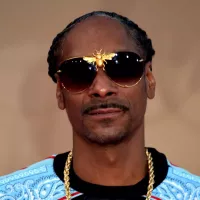
Calvin Cordozar Broadus Jr professionally known as Snoop Dogg is...
Home Box Office HBO is an American pay television service...

Tina Turner the Queen of Rock 'n' Roll was a...
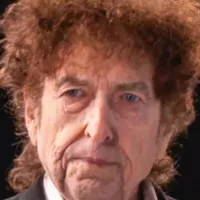
Bob Dylan is a highly influential American singer-songwriter renowned as...

Elvis Presley the King of Rock and Roll was a...
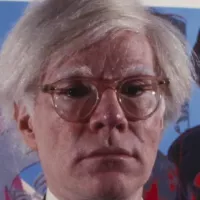
Andy Warhol - was a pivotal American artist film director...
Trending

40 minutes ago Ben Kindel's Performance Sparks Debate About a Larger Role in the Penguins Lineup.
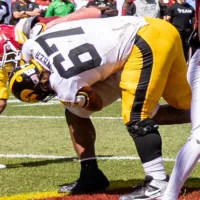
40 minutes ago Gennings Dunker: Iowa standout seen as perfect fit for the Steelers.
2 hours ago Fenerbahce faces Semedo injury, Tedesco absence for Antalyaspor match: shock!

2 hours ago Mick Schumacher's IndyCar Debut: A Wreck, Livery Reveal, and F2 Comparison.

2 hours ago Shivam Dube's performance under scrutiny after T20 World Cup match against Zimbabwe.
2 hours ago Piero Hincapié returns to Bayer Leverkusen; possible match against Arsenal in Europa League.
Popular

Jesse Jackson is an American civil rights activist politician and...

Hillary Diane Rodham Clinton is a prominent American politician lawyer...

XXXTentacion born Jahseh Dwayne Ricardo Onfroy was a controversial yet...

Kashyap Pramod Patel is an American lawyer who became the...

Michael Joseph Jackson the King of Pop was a highly...

Jim Carrey is a Canadian-American actor and comedian celebrated for...
